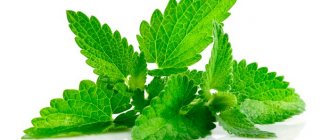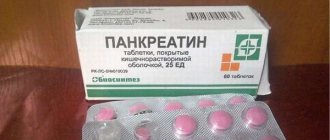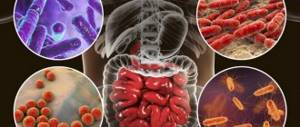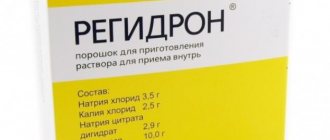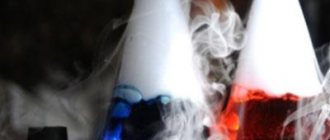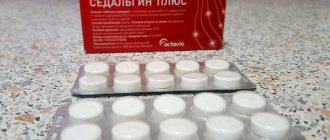Food poisoning or foodborne illness occurs as a result of eating contaminated or spoiled food that contains toxins, chemicals, and pathogens such as bacteria, parasites, and viruses.
Before we look at home remedies for food poisoning , make sure you have a foodborne illness. There are a number of common symptoms that indicate that a person has food poisoning. Among the symptoms, the most commonly observed are:
- vomit
- abdominal cramps
- diarrhea (diarrhea)
- increased sweating
- dizziness
- excessive salivation
- abdominal pain
- lacrimation
Symptoms that signal a life-threatening case of poisoning (under no circumstances should be treated at home - go straight to the emergency room), for example, when infected with the Botulinum bacterium that causes botulism, may include:
- partial loss of vision or speech
- dry mouth
- muscle paralysis
- difficulty swallowing food
- tachycardia
- pale skin
- muscle weakness
Food poisoning - treatment at home
In most cases, food poisoning goes away on its own within 48 hours, but sometimes the illness takes a serious form, which requires urgent help, which you can read here - First aid for food poisoning - what is possible and what is not. However, using the remedies below, you can significantly improve your condition and speed up your recovery. Treating food poisoning at home can be very effective in most cases, but if your condition does not improve within 24 hours or you experience severe and frightening symptoms, call an ambulance immediately.
Lemon
Lemons contain anti-inflammatory, antiviral and antibacterial compounds that inhibit bacteria that cause food poisoning. Just squeeze out the lemon juice and mix it with a little sugar (you can do it without sugar). Take one teaspoon 2-3 times a day. To cleanse your body, you can use a mixture of warm water and lemon - simply mix 1 tablespoon of lemon juice with a glass of warm water and drink several times a day. Read in detail about the beneficial properties of lemon water.
Ginger
Ginger root is also an excellent folk remedy for treating food poisoning. Drinking tea with lemon and ginger after lunch and dinner eliminates heartburn and nausea. Even a few drops of ginger juice in honey can reduce inflammation. Eating raw ginger can significantly improve digestion by increasing the production of gastric juice.
Garlic
Thanks to its powerful antiviral, antibacterial and antifungal properties, garlic is an effective remedy for food poisoning (see Benefits of Garlic). If you are poisoned, simply chewing fresh garlic cloves or drinking garlic juice will help eliminate the pathogens that caused the poisoning. You can also start taking specially formulated garlic oil capsules.
You can also help your body cope with food poisoning in the following way - mix garlic oil with soybean oil, and then simply rub it into the skin of your stomach after eating.
Prevention
Food poisoning is very easy to provoke from low-quality food products, as well as those with expired expiration dates. Keep your kitchen clean and disinfect kitchen utensils.
Use fresh produce and wash fruits and vegetables thoroughly. Rinse the greens under running water.
Keep cooked food in a sealed container. It is better to heat yesterday's food before consumption.
Maintain personal hygiene by washing your hands before preparing food. Remember that your gut health depends on your food.
Folk remedies for poisoning are used quite often. Decoctions, infusions and other substances prepared from medicinal plants often help with various intoxications. However, such medications must be used with caution. How to treat poisoning with folk remedies so as not to cause harm?
Beneficial properties of lemon
What are the benefits of lemon? Citrus is an affordable and effective fruit that helps cope with many diseases.
The composition contains organic acids, various vitamins and beneficial microelements. What effect does lemon have on the body?
- Lemon has an antiseptic effect, strengthens the immune system and increases the body's resistance to viruses and bacteria. The composition contains many vitamins, essential oils, pectin.
- The fruit is an excellent antioxidant due to its high content of vitamin C. When citrus is consumed, cholesterol is quickly broken down. Vitamin C promotes the rapid formation of collagen, necessary for the regeneration of skin and bones.
- Lemon peel contains bioflavonoids that normalize the condition of blood vessels and capillaries. Such compounds help eliminate toxins and increase the protection of the cardiac system from harmful effects.
When a person is poisoned, the organs of the digestive system are affected, and unpleasant symptoms occur in the form of vomiting and diarrhea. Eating lemon helps to cope with negative symptoms and cleanse the gastrointestinal tract of bacteria that have entered it.
Citrus contains dietary fiber, which normalizes intestinal motility and restores stool. Drinking lemon during poisoning helps replenish the necessary elements in the body. The juice can be consumed for preventive purposes, this will help prevent disruption of the digestive system.
Solutions with the addition of lemon juice can be used for cleansing enemas, after consulting with a medical professional.
Main symptoms
Signs may manifest differently in different people. Their intensity directly depends on the amount of “poison” in the product eaten, the degree and type of poisoning, and toxins that enter the body along with the product.
The first signs of eating stale food products are:
- Pain in the abdomen or limbs.
- Nausea, which is accompanied by vomiting.
- Weakness.
- Increased sweating.
- Severe intestinal disorders.
- Diarrhea (sometimes with blood or green matter).
Symptoms of poisoning in infants can be recognized by frequent, watery discharge. At this point, the baby may cry frequently, which is a sign of stomach pain.
Symptoms of severe food poisoning are more serious and may include blue or numb extremities, severe cramps, and loss of consciousness. In some cases, cyanosis (cyanosis) of the mucous membranes and skin and shortness of breath occur.
Lemon water for poisoning
Is it possible to drink water with lemon if you are poisoned? Pure fruit juice is quite aggressive, so it is recommended to dilute it. In case of food poisoning, such a solution has an antibacterial effect - it destroys harmful microorganisms that provoked poisoning. The drink restores the patient’s vitality, eliminates nausea, and normalizes metabolism. Proper use allows you to get rid of toxins and poisons.
Lemon decoction helps to quickly cope with diarrhea. To prepare, two fruits are cut and poured with two glasses of water. Cook over low heat, covered, for half an hour. The finished product is filtered and drunk half a glass up to three times a day. The decoction will help stop diarrhea and avoid dehydration.
It is recommended to drink water with lemon to get rid of a hangover due to alcohol poisoning. The presence of a large amount of vitamins and minerals allows you to quickly provide the body with energy, helps prevent dehydration and eliminates alcohol derivatives. Iron, magnesium, phosphorus, calcium, which are contained in the drink, have a beneficial effect. How does water with lemon work in case of poisoning?
Effect of lemon:
- toxic compounds are destroyed;
- blood vessels dilate;
- blood thins;
- pressure and temperature decreases;
- kidney function improves;
- Excess fluid is removed and swelling is reduced.
In case of alcohol poisoning, lemon has an excellent ability to accelerate the breakdown of ethanol and reduce its negative effect.
The recipe for making a drink with citrus is simple. The juice from the lemon is squeezed out using a simple spoon, after cutting it into halves. Dilute it with a glass of warm water. Take the medicine gradually and in small sips.
Tea with lemon for intoxication
It is recommended to drink a similar drink in case of various overdoses in order to normalize the body’s condition. The product effectively deals with harmful compounds and promotes their removal. To get the desired result, tea with lemon in case of poisoning is prepared at home, observing certain conditions.
- The prepared tea should be warm. Drinking too hot irritates the gastric mucosa. A cold drink requires energy and effort to heat it up.
- It is recommended to choose high-quality tea and brew fresh each time.
- For a product to be beneficial, it must not be made too strong.
Adding sugar to tea is acceptable, but it is not recommended to abuse it. For preparation it is allowed to use black and green tea, currant and strawberry leaves, and raspberries.
Rules for proper use
In addition to the question of what tea to drink if poisoned, you need to know how to drink the drink correctly. The first recommendation from doctors is to drink tea only warm. When a person tells a doctor: “We as a family only drink tea with fruit flavors,” the doctor will recommend not using such a product in case of intoxication. The reason is that flavorings can further poison the body.
Doctors advise not to drink tea instead of water in case of poisoning and to stick to a healthy amount of the product - no more than 4 cups per day. Another common recommendation for people who have been poisoned is to brew fresh tea leaves and add low-fat milk to them before each use. Ginger root is a useful ingredient that enhances the cleansing effect of the tea drink.
Other citrus fruits
Is it permissible to eat other citrus fruits if poisoned? What effect do they have on the body?
It is important to remember that it is permissible to consume any fruit after the acute signs of poisoning have disappeared. In the first days after poisoning, they must be baked; they cannot be eaten raw in order to avoid unpleasant sensations in the stomach and intestines. During the rehabilitation period, any citrus fruits are prohibited.
They contain a lot of acid and are quite watery, so they can provoke repeated diarrhea and heaviness in the stomach. Lemon also belongs to this group, so it is not consumed in its pure form; it is only allowed to use its juice in diluted form.
Oranges, tangerines and other citrus fruits cannot be consumed immediately after intoxication; they can be included in the diet after a few days. Such fruits will help replenish the body with essential vitamins and microelements.
Causes and dangers of citric acid poisoning
Category: Chemical poisoning
Citric acid, or lemon, is a weak tribasic carboxylic acid and is a crystalline white substance with a melting point of 153°C. Citric acid is highly soluble in aqueous media and ethyl alcohol, and esters and salts of this substance are called Citrates.
The use of citric acid and its effect on human health
“Limonka” and some of its salts, represented by sodium and potassium citrate, calcium citrate and bismuth tripotassium dicitrate, are very widely used as a flavoring agent, acidity regulator and natural preservative in the food industry. The substance is actively used in the production of drinks and processed cheeses.
For medical purposes, the drug is prescribed to improve energy metabolic processes in the human body. In the cosmetic industry, the substance is used as an acidity regulator, buffer and chelating agent in effervescent bath compositions. Small doses activate the Krebs cycle, which effectively speeds up metabolism. In the oil industry, for drilling gas and oil wells, acid is used as a neutralizer for high pH levels in drilling fluids.
Modern construction technologies involve the use of citric acid as a special additive for cement and gypsum. This natural binder significantly slows down the setting of the mortar. Together with hydrogen peroxide, the crystalline substance allows the etching of printed circuit boards. In domestic conditions, it is a highly effective means for cleaning surfaces from dirt or scale deposits.
Dry powdered lemongrass, as well as its concentrated solutions, causes quite strong irritation of the mucous membrane of the eyes and skin of people who, as a rule, are hypersensitive to the substance. Simultaneous internal consumption of large amounts of citric acid provokes irritation of the gastric mucosa, painful cough and bloody vomiting. Inhalation of dry matter dust causes irritation of the upper and lower respiratory tract.
Can you be poisoned by citric acid?
As practice shows, negative consequences occur only when consuming a concentrated, high dose of the substance. At the end of the seventies of the nineteenth century, a hoax became widespread in Western Europe, which was known as the “Villejuif list”. According to this hoax, “lemon” in any quantity was classified as a very strong carcinogen, which is completely untrue. The main cause of poisoning is non-compliance with the rules of use or violation of storage technology.
The causes of citric acid poisoning are:
- accidental consumption of citric acid;
- incorrect dosage of the substance;
- non-compliance with safety rules when using lemon-based cleaning products;
- special poisoning in the presence of suicidal tendencies;
- intoxication when mixing a substance into compote or tea;
- contact of a concentrated solution with the skin or mucous membranes.
In the latter case, a severe chemical burn of the conjunctiva occurs, followed by loss of vision.
It is difficult to get poisoned by lemon, but it is quite possible. Lemons are contraindicated for diseases represented by:
- stomach ulcer;
- rectal ulcer;
- different forms of gastritis;
- damaged tooth enamel;
- allergic reactions;
- hypertension.
The acid found in lemons can provoke the development of stomach pain in people who suffer from ulcers or gastritis, and also have other problems of the digestive system.
In accordance with the ICD-10 classification list, accidental poisonings are registered, including the use of medicinal and other substances based on citric acid. In this case, lemon poisoning occurs in a similar way to intoxication of the body with other nutrients. Due to its high acidity, lemon practically does not undergo rotting processes, and an excess of citric acid can cause disastrous consequences even in an absolutely healthy person. Clinical trials that confirm the harm of this product are very few, therefore the ICD-10 list includes only proven methods that cause harm to health.
Symptoms of poisoning
Citric acid poisoning is accompanied by the following symptoms:
- severe pain in the throat or along the digestive system, which is caused by severe burns of the mucous membranes;
- feeling of nausea and vomiting. Vomit has a characteristic red coloration, indicating the presence of internal bleeding and destruction of small vessels. If there is dark mucus in the vomit, a burn to the walls of the stomach and duodenum can be assumed;
- headache and muscle weakness, indicating general intoxication of the human body;
- severe diarrhea with dark-colored stool;
- rapid heartbeat;
- a sharp drop in blood pressure;
- convulsions in the limbs, indicating the negative impact of the toxic substance on the cells of the nervous system;
- loss of consciousness developing against the background of severe poisoning with citric acid.
Contact of a concentrated substance on the surface of the skin causes redness of the epidermis, itching, and the appearance of a rash. Particularly dangerous is the contact of concentrated acid with the mucous membranes of the eyes.
First aid rules
After calling the medical team, before the doctors arrive, the victim must be given all possible first aid:
- providing the victim with complete rest;
- rinsing the mouth with plenty of clean water;
- applying a cold heating pad to the stomach area, which causes vascular spasm and slows down the release of toxins into the bloodstream;
- the chemical substance that gets onto the surface of the skin is washed off with warm running water.
In case of poisoning, it is forbidden to forcibly induce vomiting, since in this case the condition may worsen due to repeated injury to the esophagus with substances from the stomach. It is strictly forbidden to use any alkaline solutions that react with acids, which is accompanied by the formation of a large amount of gases that cause internal bleeding.
Doctors who arrive on call carry out a visual examination of the victim, measure pressure, and, if necessary, perform gastric lavage using a medical probe. Symptoms of intoxication make it possible to determine the purpose of a further scheme of therapeutic measures. The victim is given intravenous antiemetics, painkillers, and hemostatic drugs.
Severe poisoning, accompanied by profuse internal bleeding, paleness and blue discoloration of the skin, requires treatment in a hospital. In case of severe hypotension with shortness of breath and loss of consciousness, as well as in a deep comatose state, immediate hospitalization of the victim to the nearest medical facility will be required.
poisoning.info
Contraindications to taking lemon
There are cases when drinking drinks with added fruit juice can lead to unpleasant consequences. In what situations is treatment prohibited?
- ulcerative lesions of the stomach;
- presence of gastritis;
- allergic reactions to citrus fruits;
- high acidity in the stomach;
- increased sensitivity of tooth enamel.
Drinks with a high concentration of lemon juice can cause irritation of the gastric mucosa, so solutions must be prepared carefully. It is recommended to consult a healthcare professional before use.
In what cases should you call a doctor quickly?
If you cannot eliminate the symptoms of poisoning on your own, and the situation worsens, you should stop self-medicating. In such cases, it is better to consult a doctor or call an ambulance.
Specialist intervention is necessary when the following signs are present:
- severe pain in the abdominal area;
- vomit with the presence of bile and blood;
- high body temperature;
- frequent bouts of vomiting and lack of appetite;
- the appearance of seizures;
- diarrhea;
- fainting conditions;
- development of weakness.
A timely response to symptoms and qualified medical assistance will help maintain health.
Use of lemon in children and pregnant women
Poisoning in children is more severe than in adults. Therefore, when symptoms of intoxication appear, it is recommended to provide first aid to children as quickly as possible. It is permissible for children to drink water with lemon juice; tea will also be useful.
When feeding a child, you must follow the rule - the drink is given in small portions and slowly, carefully observing the reaction of the little patient. This product will help you avoid dehydration.
Poisoning in pregnant women requires careful attention. In such situations, it is not always possible to use tablets and drugs that help with poisoning. Tea or water with lemon will help get rid of toxic compounds, cope with attacks of nausea and other unpleasant sensations. Before use, you should consult your doctor.
Irritation, a feeling of sand in the eyes, redness are only minor inconveniences with impaired vision. Scientists have proven that decreased vision in 92% of cases ends in blindness.
Crystal Eyes is the best remedy for restoring vision at any age.
In cases of intoxication, lemon cannot be used in its pure form, but adding juice to drinks is acceptable. When used correctly, the body is cleansed of toxic compounds and recovers faster. It is necessary to exclude contraindications before starting treatment.
First aid: normalize water balance
With vomiting and diarrhea, we lose a large amount of fluid that needs to be replenished. When losses are not very abundant, just drinking water is enough.
Drink small sips, but often - this will help cope with nausea without provoking the gag reflex. If you can't drink, you can start by sucking ice cubes.
With excessive fluid loss, signs of dehydration begin to appear: dry mouth and dry skin, weakness, dizziness, decreased amount of urine or its darkening, increased heart rate or breathing rate. In this case, you will need to replace the glucose and electrolytes that have left the body - potassium and sodium necessary to maintain the water-salt balance.
The most reliable solution would be to buy rehydrating preparations at the pharmacy - powders that contain all the necessary microelements in a balanced composition. You can purchase any ORS (oral rehydration salt preparations), or ORS, oral rehydration solution, if you are abroad.
For children, special solutions are sometimes replaced with apple juice diluted twice - with this treatment it will be easier for the child to drink more liquid.
Video: 10 beneficial properties of lemon in case of poisoning
To fully restore the body, a gentle diet must be followed for at least three days:
Puree or liquid consistency of all dishes. Minimize the daily amount of food consumed so as not to overload the stomach (per day - no more than 1000 kcal). Boil or steam food. Eat food warm. It is not allowed for it to be hot or cold. Eat little, but often. Drink as much fluid as possible, including plain, clean water. It is useful during this period to drink a weak infusion of St. John's wort, which is a natural intestinal antibiotic. Recommended products include:
weak rosehip decoction; Tea with lemon; cereal decoctions (rice, buckwheat); weak broths; boiled lean pureed meat (veal, chicken, rabbit, turkey); dried fruits compote; crackers, biscuits; semi-liquid mashed potatoes. During this period it is undesirable to use:
sausages; fatty meat or fish; canned food; smoked meats; some types of porridges (millet, barley and pearl barley); cocoa; coffee; whole milk; various sweets; carbonated drinks.
